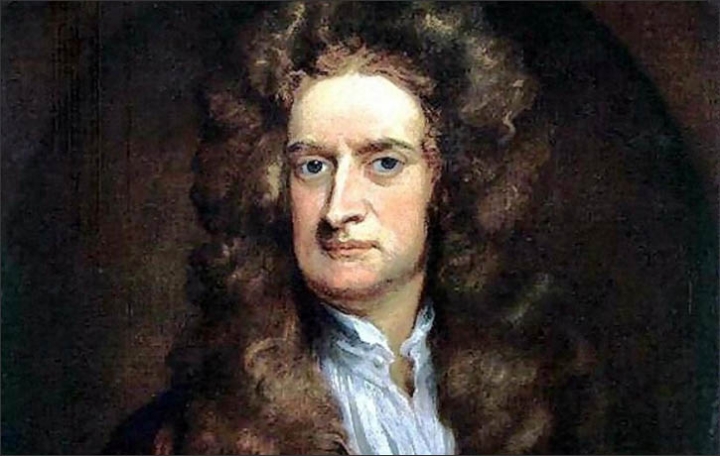
Nearly 300 years after his death, Isaac Newton lives on as a byword for genius. As a polymath whose domain encompassed astronomy, physics, and mathematics, he mastered and expanded the domain of scientific knowledge available to 17th-century Europe. But if we remember him as a one-man engine of the scientific revolution, we should also bear in mind his contrasting intellectual frailties: Newton was no financial genius, as evidenced by his loss of $3 million in the South Sea Bubble of 1720, and though his inquiries into alchemy may be fun to re-enact today, we wonder now why he didn’t see them as a dead end even then. And then we have his forays into medicine, one of which involves toad vomit.
“Two unpublished pages of Newton’s notes on Jan Baptist van Helmont’s 1667 book on plague, De Peste, are to be auctioned online by Bonham’s this week,” reported The Guardian’s Alison Flood earlier this month. “Newton had been a student at Trinity College, Cambridge, when the university closed as a precaution against the bubonic plague, which killed 100,000 people in London in 1665 and 1666. When the polymath returned to Cambridge in 1667, he began to study the work of Van Helmont,” a famous Belgian physician. While some of the conclusions Newton drew from his study of Van Helmont’s work remain practical today — “places infected with the plague are to be avoided,” for instance — his suggested cures may not hold up to scrutiny.
In the “best” plague treatment observed by Newton, “a toad suspended by the legs in a chimney for three days, which at last vomited up earth with various insects in it, on to a dish of yellow wax, and shortly after died. Combining powdered toad with the excretions and serum made into lozenges and worn about the affected area drove away the contagion and drew out the poison.” Learning how, exactly, Newton found his way to such a procedure will inspire enthusiastic collectors to bid on these papers, which remain on the Bonham’s online auction block until June 10th. Newton may, as we recently noted here on Open Culture, have had some of his most groundbreaking ideas during the era of the plague, but even a mind as formidable as his by its very nature missed a few times, sometimes wildly, for every hit. Yet as the world’s scientific-industrial complex races to develop a vaccine for COVID-19, we might consider what unorthodox solutions have gone overlooked in our Newton-less era.
Related Content:
Isaac Newton Conceived of His Most Groundbreaking Ideas During the Great Plague of 1665
Videos Recreate Isaac Newton’s Neat Alchemy Experiments: Watch Silver Get Turned Into Gold
In 1704, Isaac Newton Predicts the World Will End in 2060
Sir Isaac Newton’s Papers & Annotated Principia Go Digital
Based in Seoul, Colin Marshall writes and broadcasts on cities, language, and culture. His projects include the book The Stateless City: a Walk through 21st-Century Los Angeles and the video series The City in Cinema. Follow him on Twitter at @colinmarshall, on Facebook, or on Instagram.


Leave a Reply